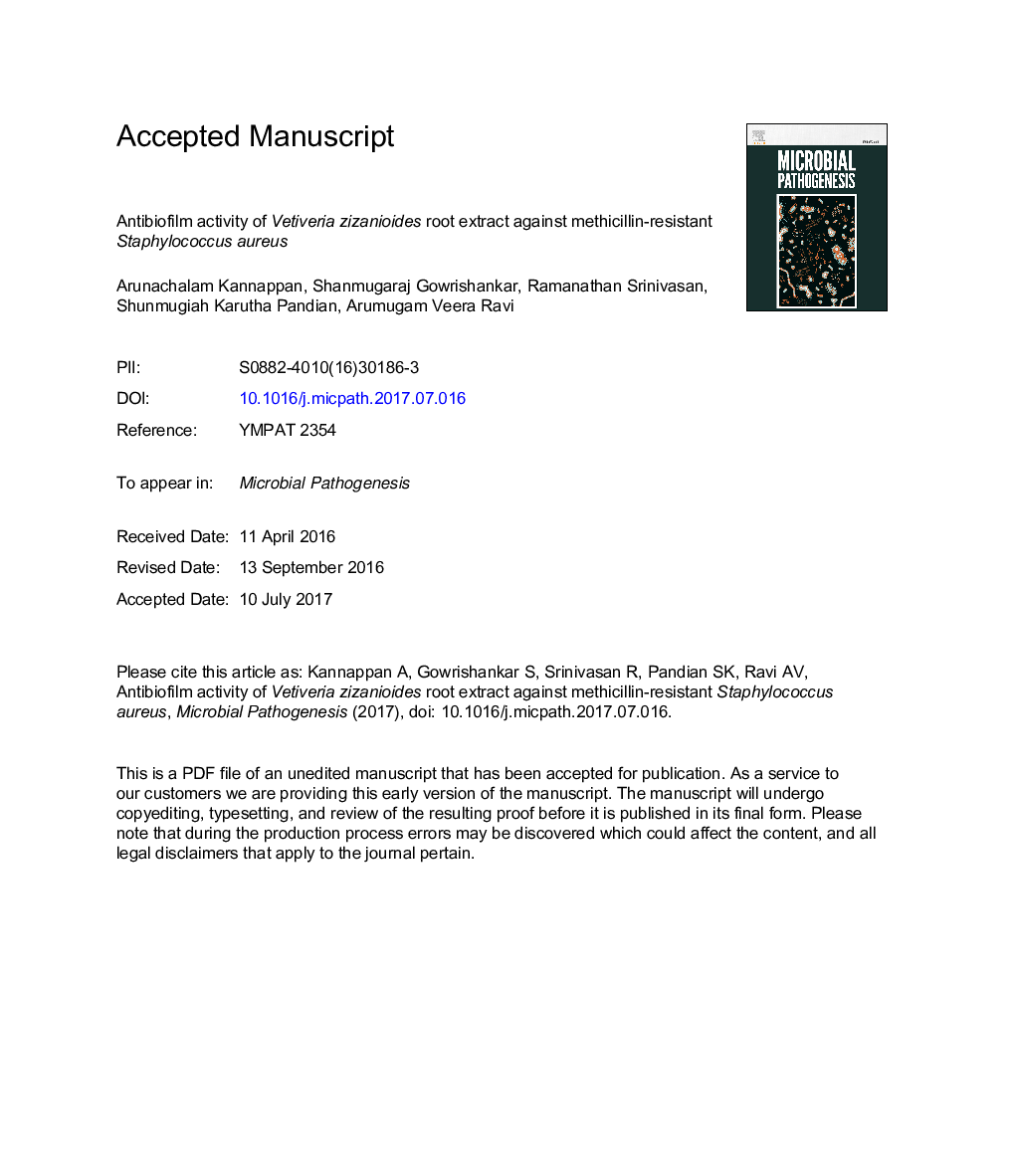| Article ID | Journal | Published Year | Pages | File Type |
|---|---|---|---|---|
| 5673679 | Microbial Pathogenesis | 2017 | 45 Pages |
Abstract
Methicillin-resistant Staphylococcus aureus (MRSA) is a leading human pathogen responsible for causing chronic clinical manifestation worldwide. In addition to antibiotic resistance genes viz. mecA and vanA, biofilm formation plays a prominent role in the pathogenicity of S. aureus by enhancing its resistance to existing antibiotics. Considering the role of folk medicinal plants in the betterment of human health from the waves of multidrug resistant bacterial infections, the present study was intended to explore the effect of Vetiveria zizanioides root on the biofilm formation of MRSA and its clinical counterparts. V. zizanioides root extract (VREX) showed a concentration-dependent reduction in biofilm formation without hampering the cellular viability of the tested strains. Micrographs of scanning electron microscopy (SEM) and confocal laser scanning microscopy (CLSM) portrayed the devastating impact of VREX on biofilm formation. In addition to antibiofilm activity, VREX suppresses the production of biofilm related phenotypes such as exopolysaccharide, slime and α-hemolysin toxin. Furthermore, variation in FT-IR spectra evidenced the difference in cellular factors of untreated and VREX treated samples. Result of mature biofilm disruption assay and down regulation of genes like fnbA, fnbB, clfA suggested that VREX targets these adhesin genes responsible for initial adherence. GC-MS analysis revealed the presence of sesquiterpenes as a major constituent in VREX. Thus, the data of present study strengthen the ethnobotanical value of V. zizanioides and concludes that VREX contain bioactive molecules that have beneficial effect over the biofilm formation of MRSA and its clinical isolates.
Keywords
Related Topics
Life Sciences
Immunology and Microbiology
Microbiology
Authors
Arunachalam Kannappan, Shanmugaraj Gowrishankar, Ramanathan Srinivasan, Shunmugiah Karutha Pandian, Arumugam Veera Ravi,
